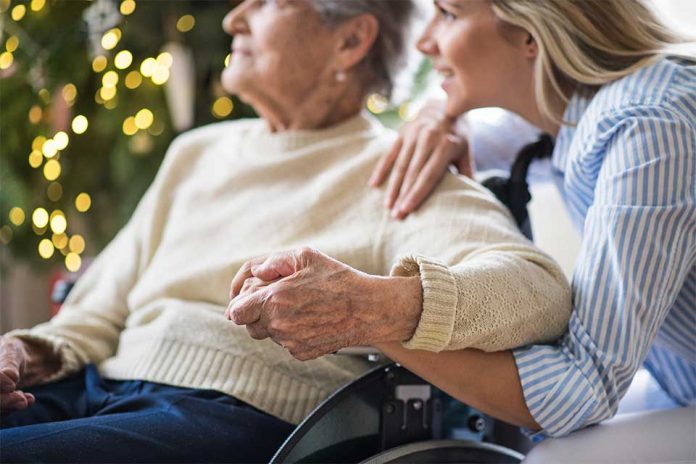Does your senior loved one have trouble getting in and out of their favorite chair? Have they started to ignore important everyday tasks like cooking, cleaning, or grooming? Have you noticed a decline in your loved one’s home environment – dust everywhere, refusing to go out and get the paper, ignoring their beloved lawn or garden?
If the answer to any of those questions is “yes,” then your senior family member be having trouble with routine and instrumental activities of daily living, or ADLs.
As a loving family caregiver, it’s important to keep an eye on your aging loved ones. Often, their behaviors and habits may be telling a story that they otherwise want to keep hidden.
We’ve noted before that there are lots of major and minor “yellow flags” to watch out for, which could indicate that it’s time to get support for your aging loved one beyond what you can provide alone. Your senior family’s ability to handle ADLs is one important area to observe.
ADLs are an extremely revealing “marker” when it comes to senior care. Put simply, these are the routine tasks and actions that make up day-to-day life, for people of all ages. As people get older, and experience accidents, undergo surgeries, and face cognitive changes, it can be harder to keep up with these ADLs as easily as they did when they were younger. If your loved one is challenged by their ADLs, this could be a sign that it’s time to reach out for extra help – perhaps to a caregiver or companion, who may be able to lend a hand in many different ways.
So, as a family caregiver, what should you be on the lookout for? Here’s a quick guide to the two most important categories of ADLs for senior care:
Activities of Daily Living (ADLs)
Broadly speaking, activities of daily living (ADLs) refer to the everyday tasks that we all do throughout a given day. As a term, it refers to some fundamental aspects of day-to-day life and functionality, including:
Mobility. This category might refer to a senior’s ability to sit and stand without support, walk around, climb the stairs transfer into and out of bed, and so on.
Hygiene. This might include brushing teeth, shaving, combing hair, and other personal grooming tasks.
Showering and Bathing. Can your loved one get in and out of the shower or tub safely? Are they willing and able to wash themselves properly, on a regular schedule?
Using the Bathroom. Does your loved one struggle to use the toilet, including sitting and standing
Dressing. This includes picking out clothes and putting them on without a lot of strain or effort.
Eating. Is the senior able to feed themselves on a regular schedule? Do they remember to have meals, and can they chew and swallow without too much strain?
Instrumental Activities of Daily Living (IADLs)
Routine activities of daily living refer to the basic steps that most people take in a given day, in order to function regularly. Instrumental activities of daily living (IADLs) might be thought of as the more advanced jobs and activities that are required in order to remain independent, safe, and stable. For seniors, some common examples of IADLs might include:
Taking Care of Their Home. This might include doing laundry, cleaning up, taking care of a pet, and so on.
Cooking and Meal Preparation.
Shopping and Running Errands.
Managing Money and Personal Finances. Including setting a budget, tracking expenses, paying bills, and so on.
Managing Medications. This may mean remembering to take certain medications on certain days, or calling in for prescription refills as needed.
Driving and/or Using Public Transit.
Using the Telephone, the Computer, or Other Communication Devices.
Why Are ADLs and IADLs Important?
As we noted earlier, being able to complete ADLs and IADLs is essential for individuals’ health, happiness, and independence, at all ages. For seniors, there is an even more essential link between keeping up with ADLs and maintaining well-being and a higher quality of life. As a supportive family caregiver, finding ways to make ADLs and IADLs easier can be a key step towards helping your loved one to live a more fulfilling and independent life.
For seniors and the caregivers who love them, ADLs can act as a bellwether for how self-sufficient a senior is. Observing how an elderly adult manges their activities of daily living can help allow you take steps to get more involved, whether that means helping the senior make healthier lifestyle changes, starting the dialogue about long-term care options, or getting more proactive in order to head off future complications.
In other words? Being able to recognize a senior loved one’s limitations can allow you to begin finding ways to help, including developing a care plan and reaching out to the right resources in your community. The more understanding you have about how your loved one is affected by their ADLs, the better positioned you may be to fully grasp the scope of care your loved one might need, and start researching options that might work – such as home care.
It’s all about ensuring your senior loved one gets the level of support and care they truly deserve, so that they can be empowered to live a more healthy, full, and complete life.
How Companions for Seniors Can Help
Are you starting to see small or significant changes or worrying signs from your aging loved ones, such as difficulties keeping up with ADLs? If so, it may be time to consider your options for providing help.
This can be a tough conversation to have, and it may end up involving many different parties – ranging from other family members to your parent’s healthcare providers.
Fortunately, there are many options out there to help your elderly loved ones to age in place, including home care from Companions for Seniors.
With in-home care, a senior companion can visit your senior loved one in the comfort of their own home, providing service on a flexible schedule that works for the senior, and which best suits your needs as a family caregiver. Companions are available for full-time care, or for as little as a few hours a week, and can help your senior keep up with ADLs and IADLs, including grooming, bathing, running errands, managing medications, attending appointments, cooking meals, doing housework, and so much more.
At Companions for Seniors, our mission is to help seniors live independently and with dignity in the comfort of their own home by empowering them to lead an active and enriched lifestyle, connecting them with their community, and nurturing meaningful relationships.
Our companions are trained, bonded, and insured, and can help provide a variety of services designed to help your loved one remain in the comfort and safety of their own home.



























